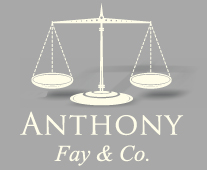Anthony Fay: From the cloud to the courts – Big Tech faces legal challenges

Anthony Fay
Anthony Fay considers how Big Tech companies like Meta could collide with Irish and EU law as they try to tackle sector-wide challenges.
The first half of 2025 has been turbulent for the tech sector — marked by fines from the Irish Data Protection Commission, staffing recalibrations after pandemic-era hiring sprees, and allegations of cyber-attacks by hostile actors targeting Ireland.
Adding to the drama, the High Court in May granted the Irish Council for Civil Liberties (ICCL) permission to initiate a landmark class action against Microsoft over alleged data breaches affecting Irish consumers.
Across the Atlantic, a US federal judge ruled in April that Google held a monopoly in online advertising technology.
Meanwhile, Meta found itself in the dock, facing a pivotal antitrust case brought by the Federal Trade Commission (FTC) in Washington. The charges once again centre on allegations of anti-competitive conduct and claims that the social media giant has created a “social networking monopoly” through its acquisitions of Instagram and WhatsApp. The trial has now concluded, with written submissions to be made to the presiding judge before a decision is handed down.
Yet for many tech employees, the more immediate concern is the continuing wave of layoffs reshaping their industry. Meta’s cuts in early 2025 still linger in the minds of many. The company advised employees to buckle up for an intense year, and it followed through by initiating performance-based terminations targeting approximately five per cent of its global staff — about 3,600 roles — with plans to replace many of these with machine learning engineers.
These job cuts did not appear to be based on redundancy — where, for example, a role within the company no longer exists. Instead, they were performance-based terminations, which may not necessarily provide bona fide grounds for dismissal under Irish law, unless fair procedures are followed.
For instance, it would be unreasonable to hire replacements without first offering existing employees the opportunity to engage in genuine performance improvement plans (PIPs) or explore redeployment options. Furthermore, fair procedures cannot logically be upheld if an employer has already made a predetermined decision to reduce its workforce by a set percentage.
Irrespective of any generous severance package on offer, there is potential reputational damage that may only become apparent when an ex-employee seeks alternative employment. Prospective employers could associate a jobseeker’s previous role at Meta with underperformance, simply based on the termination timeline. There is also legal precedent for parties pursuing claims against their ex-employer in the High Court for damages related to loss of reputation and stigma.
Having practised employment law in both Australia and Ireland, I know first-hand that transnational comparisons are fraught. Ireland’s pro-worker legal framework — rooted in EU directives and regulations — differs greatly from countries like the United States, where at-will employment is the norm.
The media have also reported that TikTok’s Dublin office has been accused of giving staff a stark choice between enduring onerous performance reviews or quitting. This raises the question: are multinational tech companies now attempting to shoehorn non-EU employment law standards into our jurisdiction?
Another perspective is that this restructuring needs to be viewed in the context of the rapid advancement of artificial intelligence and automation — a modern-day equivalent of the Spinning Jenny, a machine invented during the Industrial Revolution in the 1760s that enabled a single worker to spin multiple threads at once, significantly boosting productivity.
Given the pace of change, might the Redundancy Payments Act 1967, the principal legislation governing redundancies in Ireland, need to be examined by the recently established Employment Law Review Group or the Law Reform Commission to see whether the law is still fit for purpose? That said, any proposals would also need to balance the economic realities of Ireland’s position as a small, open economy competing in a volatile global market.
In the cyber ecosystem, we are better known as the European HQ for the tech industry rather than the land of saints and scholars. Our economic model is intricately tied to this sector — from reliance on corporation tax revenues to the demand for high-end rental accommodation to house tech professionals.
The recent Intel and Workday announcements signal their intention to reduce the size of their international workforce are a timely reminder that multinational employers should tread carefully when implementing cost reduction measures.
An aggressive layoff strategy adopted by Twitter/X in Ireland resulted in the Workplace Relations Commission (WRC) awarding substantial compensation for unfair dismissal and ensuing reputational damage — although Twitter has subsequently appealed this decision, which is currently before the Labour Court.
Stack ranking, a system where employees are compared against each other, can also lead to a toxic work environment and reduced productivity and innovation.
These factors serve as a cautionary tale for global companies that should tailor their workforce strategies to reflect both local legal norms and ethical expectations.

- Anthony Fay is principal of Anthony Fay & Co Solicitors in Dublin.










